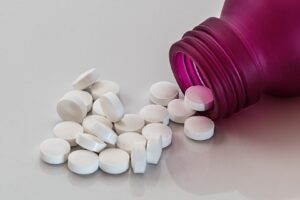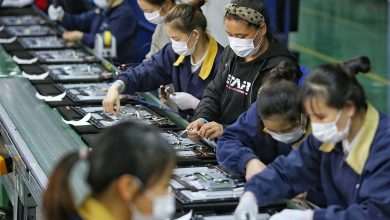Innovative medicines are the lifeblood of generics

The Department of Health (DoH) recently launched the Philippine Medicines Policy for 2022 to 2030 which will align efforts toward sustainable access to medicines and reduce healthcare out-of-pocket spending for Filipinos.
Presented during the Philippine Generics Summit held last week, the policy identifies the promotion of generics as a means for increasing medicine access.
President Ferdinand R. Marcos, Jr., was right when he said that generic medicines can lower medicine prices as it will spur further competition.
Generics infuse fierce competition in the market, pulling prices down for the patients. More importantly, generic medicines provide broader treatment options for both patients and physicians.
Access to medicines begins with pharmaceutical research and development (R&D) of medicines. For over 200 years, pharmaceutical research has led to the development of innovative, lifesaving medicines. On average, it takes 14 years to discover and test a new medicine. Due to the rigid safety and efficacy testing, only 1 to 2 of 10,000 substances eventually become available to patients. The cost of developing a successful medicine can easily exceed $2.6 billion.
Despite the long, expensive, and risky process, pharmaceutical R&D continues. An industry report stated that there are more than 9,000 drug candidates in development for cancer, immunology, neurology, infectious diseases, digestive conditions, respiratory illnesses, musculoskeletal, and diabetes among others.
A high of 74% of these medicines in the pipeline are potentially first-in-class, which refers to drugs that use a new and unique mechanism of action for treating a medical condition. The value of innovative medicines cannot be understated, as 73% of recent survival gains in cancer are attributed to treatment advances.
The value of continued R&D is also evident following the declaration of the coronavirus disease 2019 (COVID-19) pandemic. Scientists belonging to the pharmaceutical industry scanned through their vast library in search for potential diagnostics, vaccines and treatments. Due to innovation even at the risk of failures, we have produced COVID-19 vaccines at record speed, and made available treatments for mild, moderate and severe cases to help save more lives.
Innovation does not stop once new drugs are available. The R&D for these medicines continues as scientists gain better knowledge and understanding of diseases and how to treat them. Specific to COVID-19, vaccines for different age groups have been developed. Today, variant-specific vaccines have also been made available.
Beyond the development of COVID-19 vaccines, so-called incremental innovation leads to the discovery of new uses for existing treatments, improvements in dosing options, and a broader range of medicines to available to patients.
Through this continuous improvement process, we are able to provide medicines that are safer, more effective, and more responsive to the needs of patients. Examples include the availability of oral preparations from an exclusively injectable preparation such as insulin, and dosing regimens that are less complex and more “compliance-friendly,” such as those used for hepatitis C.
Innovative medicines are the lifeblood of generics. Once approved by the Food and Drug Administration, a generic drug is a medication created to be the same as an already marketed brand-name drug in dosage form, safety, strength, route of administration, quality, performance characteristics, and intended use.
When regulatory agencies approve multiple generic companies to make available a single product, more competition exists in the marketplace, which typically results in lower prices for patients.
Members of the Pharmaceutical and Healthcare Association of the Philippines (PHAP) are contributing to this effort. Rhea Generics, for example, has partnered with AstraZeneca, Boehringer Ingelheim, GlaxoSmithKline, Merck, Otsuka, Pfizer, and Sanofi to widen the availability of generic medicines while Novartis has Sandoz as its generic and biosimilar arm. Also possessing a generics portfolio are SwissPharma, Champion Biotech, Glenmark, Panpharma, Qualimed, and Vizcarra. Generic medicines are also being carried by members AC Healthcare, MedGrocer, Mercury Drug, The Generics Pharmacy, and Watsons.
PHAP, for its part, is forging partnerships to boost clinical trials for early access, fast track availability, increase supply chain efficiencies, enhance competition for greater access, and promote ethics and a level playing field in the Philippine pharmaceutical industry.
Discussions about industry development will be more comprehensive if they also consider the value of the biopharmaceutical sector. The Philippine Medicine Policy crafted by the DoH and the Philippine Pharmaceutical Industry Roadmap led by the Department of Trade and Industry are crucial pathways in enhancing access to medicines in an era of Universal Healthcare.
Teodoro B. Padilla is the executive director of the Pharmaceutical and Healthcare Association of the Philippines (PHAP), which represents the biopharmaceutical medicines and vaccines industry in the country. Its members are at the forefront of research and development efforts for COVID-19 and other diseases that affect Filipinos.




